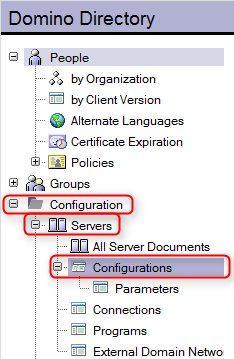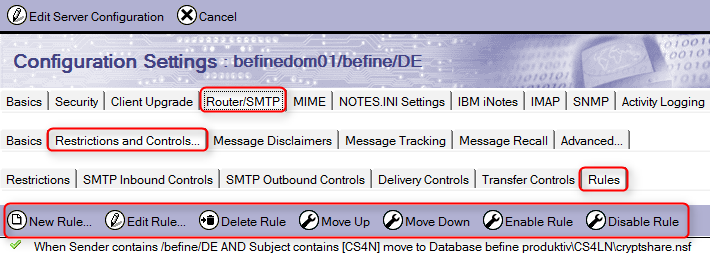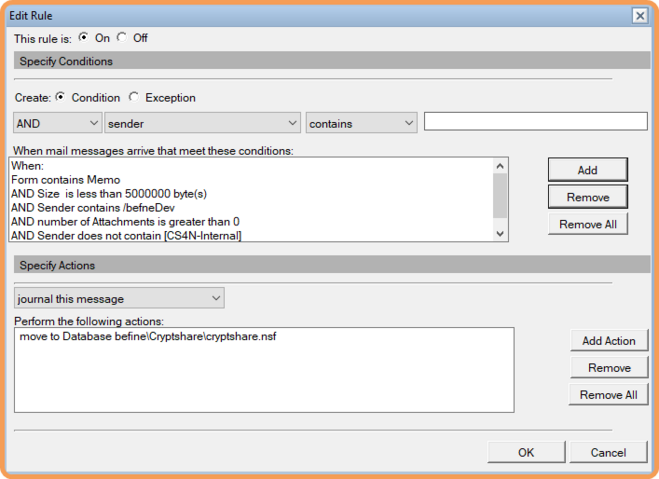CSNCurrent en:Rule-Based Mode (Variant 2)
Aus Cryptshare Documentation
About Rule-Based Mode
In this mode, messages are analysed by server-side rules and eventually moved into Cryptshare.nsf for further processing.
Creating Server-Side Mail Rules
If you use a product from a third-party vendor to manage mail traffic rules, you can create rules in the same sense as described below using the product of the third-party vendor to configure the rule-based operation of Cryptshare for Notes. Please note the manufacturer's instructions. }}
A server-side rule for e-mail messages might look as follows:
- If the number of attachments is larger than 0,
- and the total message size exceeds 10.000.000 Bytes (approx. 10 Mbyte)
- and the form name equals "Memo"
- and the sender contains your organisation name (e.g. "/befineDev")
- and the subject does not contain the placeholder [CS4N_Internal]
- then the message will be moved into Cryptshare.nsf.
CS4N scans Cryptshare.nsf on a regular basis for new messages to process.
Setting up rules in the Domino Directory
* Make sure to include the forms "Memo", "Reply" and "Forward" into you rule to cover all types of messages that can be sent form a Notes Client.
- New rules will only become active when the server re-loads the e-mail rules from the Domino Directory. Re-loading takes place every 5 minutes when the server task checks the configuration documents. Use the following command on the Domino Server console to trigger re-loading of rules manually: set rules
- Check the policies for senders/recipients allowed to use the Cryptshare server. The policies for the Cryptshare server must grant permissions to ex-change files to the same group of users as specified in CS4N.
Advantages
- A central set of rules can be defined which is mandatory for all specified users of the system.
- The user doesn't need to take or consider taking any action.
- No software roll-out is required on the Client side.
- The users will just need some basic instruction. They need to understand the auto-generated message that Cryptshare sends back to the sender.
- The router/mail.box will not have to handle large e-mails.
- To distribute the traffic load in a system with several mail.boxes, a number of CS4LN installations can be used.
- Messages of any size can be delivered regardless of restrictions for the mail-box size or the message size that may exist on the sender's side.
Important Information
- With large e-mail traffic, the CS4N application (Cryptshare.nsf) may take up a significant amount of storage space.
- Lotus Domino's "compact" task should be run against CS4N daily.
- The e-mails processed by Cryptshare bypass the standard mail route and may have to be monitored separately.


